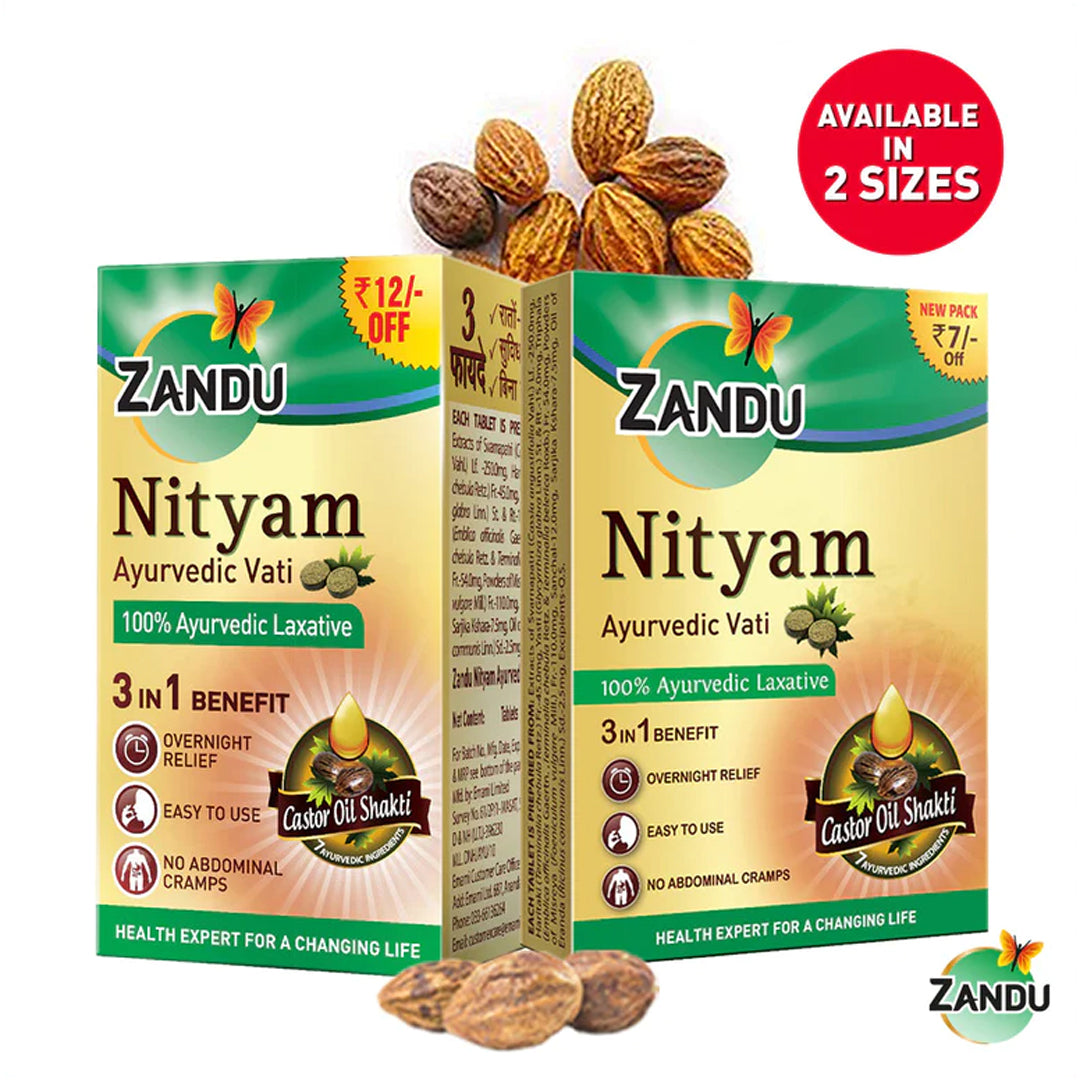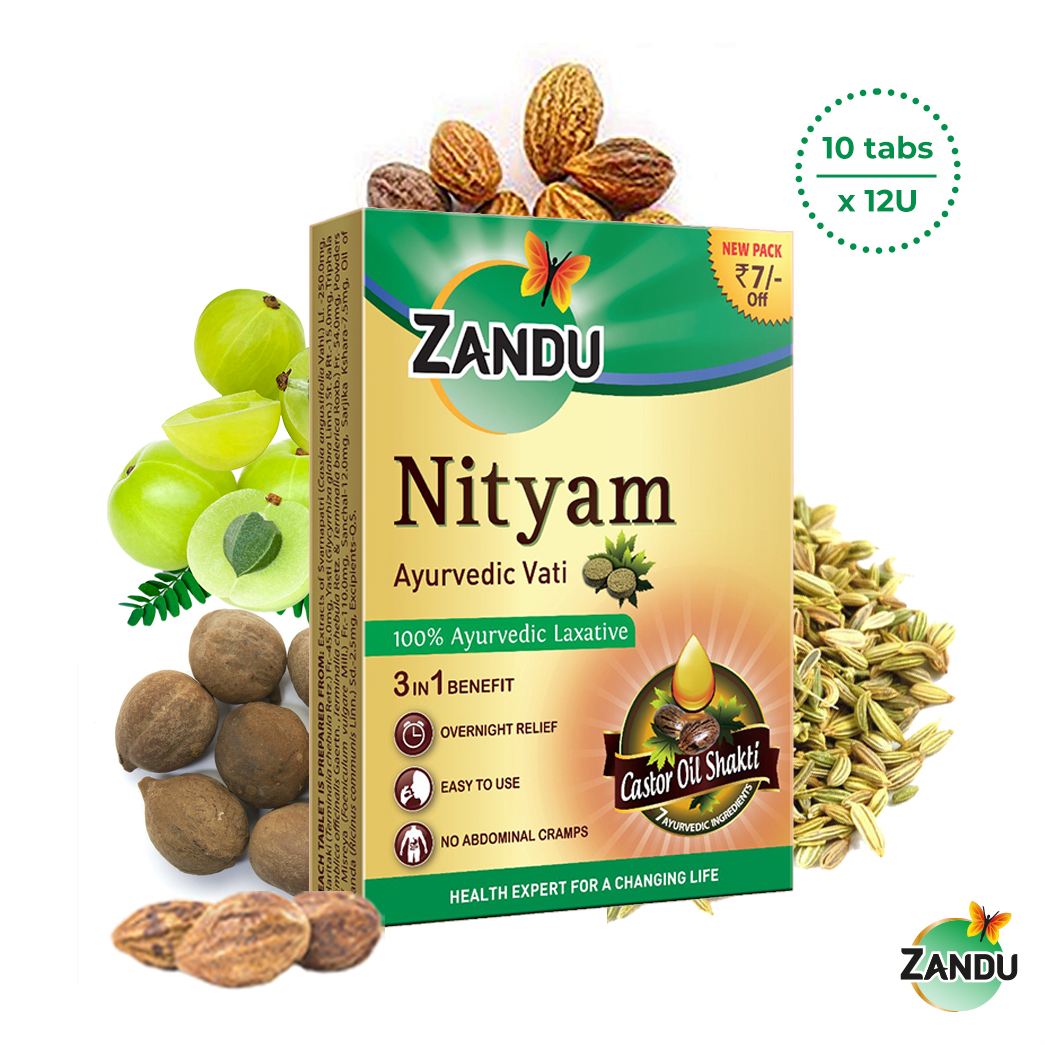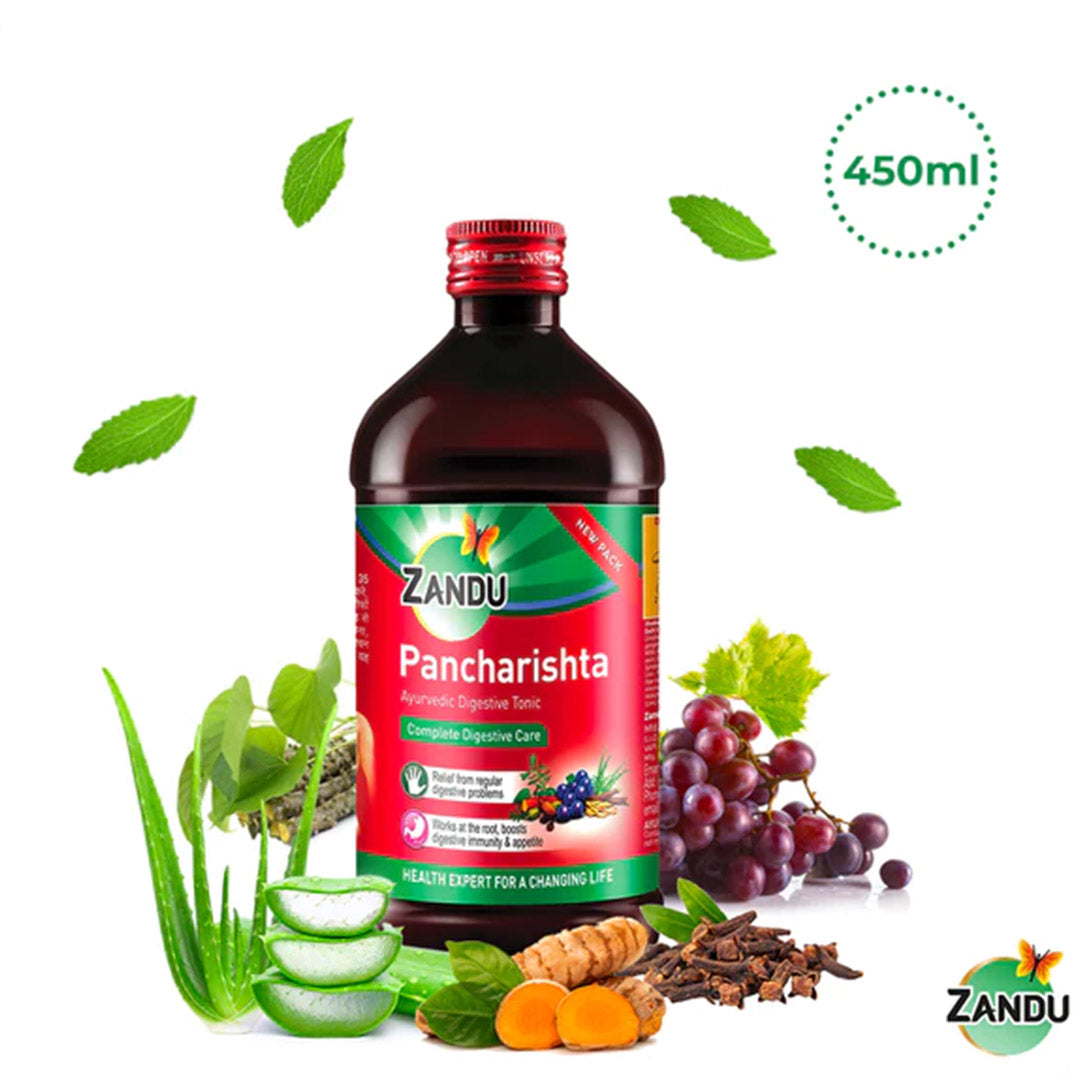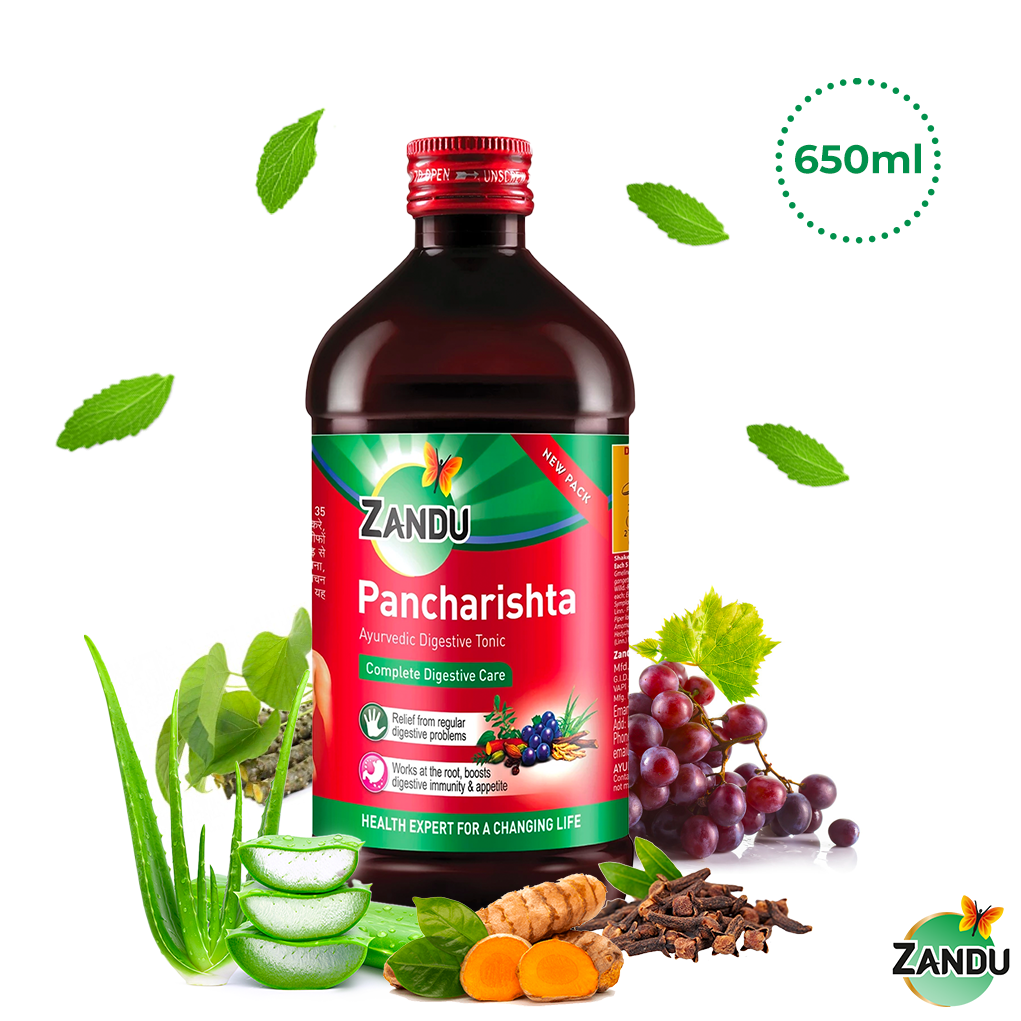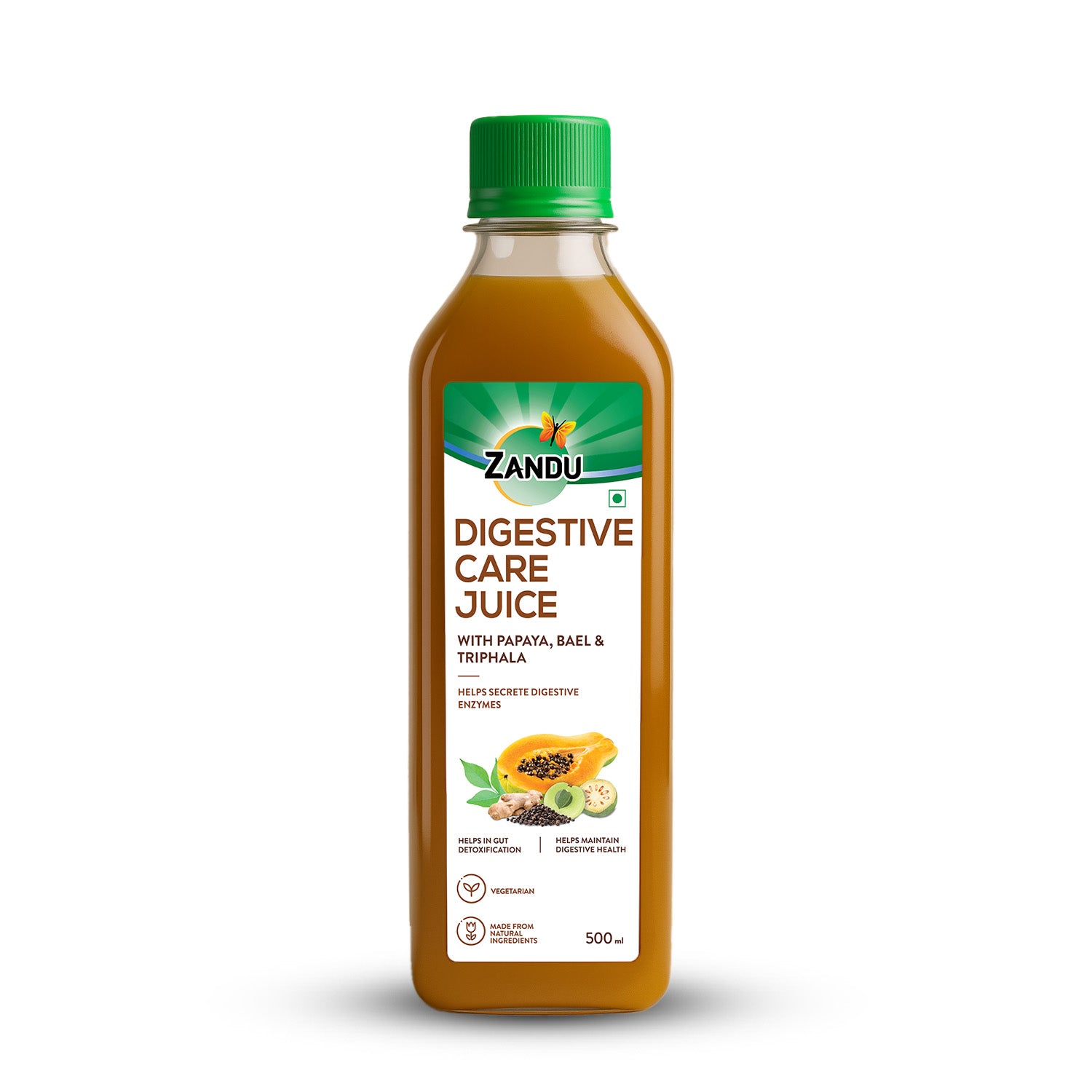Zandu Nityam Vati Ayurvedic Tablets
Sale price
₹443
Regular price₹504 12% off
Zandu Pancharishta Ayurvedic Digestive Tonic
Sale price
₹128
Regular price₹150 15% off
Zandu Digestive Care Juice
Sale price
₹224
Regular price₹280 20% off
Irritable Bowel Syndrome (IBS) is a common gastrointestinal disorder that can cause symptoms like abdominal pain, bloating, diarrhea, and constipation. It's a chronic condition that affects the large intestine or colon.
Ayurvedic products offered by Zanducare are formulated with natural ingredients known for their digestive and soothing properties. They work to balance the digestive system, alleviate IBS symptoms, and promote overall gut health.
The time to see results can vary from person to person, but many individuals experience relief within a few weeks of consistent use. The key is to follow the recommended dosage and incorporate the product into your daily routine.
Zanducare's Ayurvedic products are generally suitable for most individuals with IBS. However, it's recommended to consult with a healthcare professional before starting any new treatment, especially if you have underlying health conditions or are pregnant or breastfeeding.
There is no scientific evidence available that can say Ayurveda can cure or treat IBS completely, though it provides effective management strategies for irritable bowel syndrome (IBS). Ayurveda mainly focuses on symptom management, improving digestive health, and addressing underlying imbalances in the body.
There is no guaranteed way to cure IBS. Many people have experienced relief from IBS after taking care of their food intake and stress management.
There are limited pieces of evidence available that support this statement. Ashwagandha's stress-relieving properties may indirectly help manage IBS symptoms in those cases.
There is not one herb that can help for IBS but a group of herbs containing Peppermint Oil, Turmeric, Chamomile, Ginger, Aloe Vera, Licorice Root, and Fennel can help in providing relief from IBS.
Some people with irritable bowel syndrome (IBS) find that they can tolerate ghee better than other dairy products due to its lower lactose and casein content. However, individuals with lactose intolerance or sensitivity to dairy proteins (such as casein) may still experience symptoms when consuming ghee.

